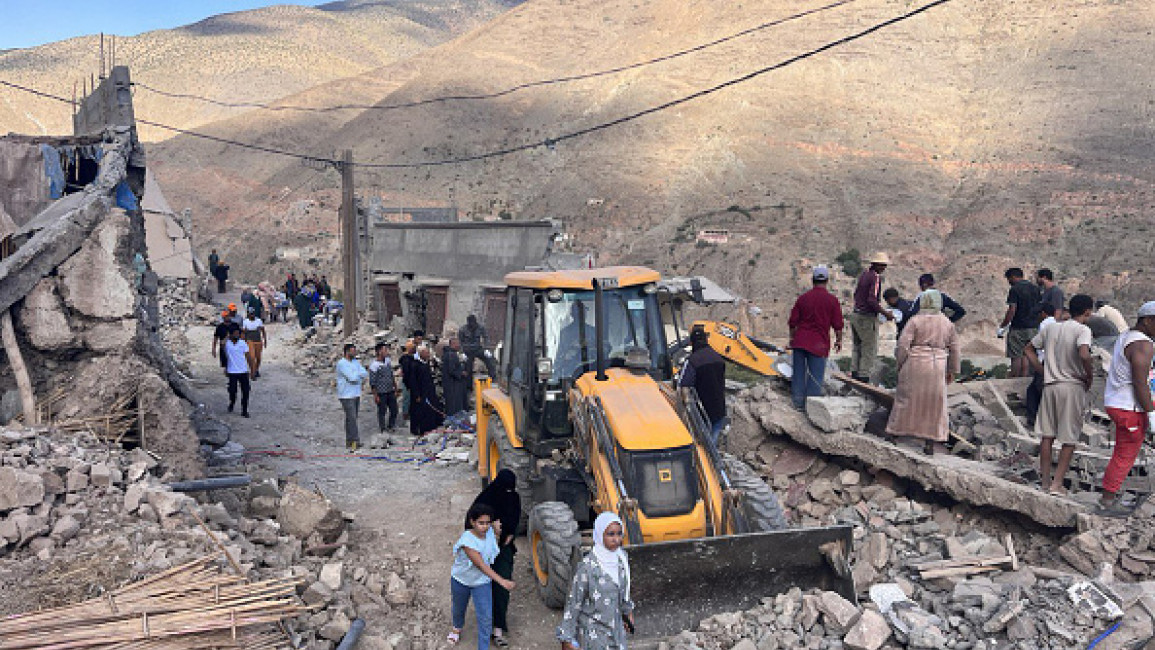Morocco accepts earthquake aid from 'select number of countries' amid criticism
Morocco announced on Sunday that it would only accept aid from the UK, Spain, Qatar, and the UAE, despite numerous global offers of assistance after Saturday's devastating earthquake claimed so-far around 2,500 lives.
Among the contributors, Spain dispatched 86 military rescuers and search dogs, while Qatar and France both sent rescue teams. The US, Switzerland, Belgium, Italy, Turkey, Poland, Israel, Iraq, and Jordan have all pledged varying forms of aid, from financial support to rescue workers, tents, and medical facilities.
The International Federation for Red Cross and Red Crescent Societies (IFRC) has committed over $1 million for relief efforts. Major international bodies, including the World Bank, International Monetary Fund, and the European Commission, alongside pharmaceutical giant AstraZeneca, have also pledged significant financial and technical support.
Following the earthquake, the Moroccan government has maintained a reserved stance, offering limited details about the rescue operations and the casualty count. This restrained approach has led to a wave of criticism on social media by Moroccans, who describe the official response as tardy and disappointing.
“The Moroccan authorities have wronged us. They won’t let us bury the bodies, they haven’t sent aid […] the bodies are decomposing. Shame on you.” https://t.co/M5NBTEMvW6
— Samia Errazzouki (@S_Errazzouki) September 10, 2023
France pledged €5m (£4.3m) to aid organisations and President Emmanuel Macron proclaimed that his government is ready to assist.
"We are all shocked after the terrible earthquake in Morocco. France stands ready to help first aid responses," he said on the sidelines of the Group of 20 summit in India.
Macron has repeated the offer several times since the magnitude 7 earthquake struck overnight on Friday and Saturday but there has been no official response. Morocco has previously accused Macron of prioritising good relations with Algeria over those with Rabat.
Morocco's selective acceptance of aid is seen as indicative of not just a political rift but personal rancor between President Emmanuel Macron and King Mohammed VI.
France recently announced a ban on abayas at public schools, arguing the garment violates the country's strict secular laws. Speaking to @the_newarab, Loubna Reguig, president of EMF-Muslim Students of France , said the ban was "illogical", as abayas are not religious clothes 👇 pic.twitter.com/iNjXSRvrH9
— The New Arab (@The_NewArab) September 5, 2023
Stanford University historian, Samia Errazzouki, said that the government's "centralized" approach is hindering critical disaster management. "The immediate hours of any natural disaster are the most crucial," she said.
However, long hours passed before the Moroccan king made a statement.
In the aftermath of the earthquake, numerous individuals remain trapped under rubble. The UK has dispatched specialised search equipment, encompassing seismic listening devices, concrete cutting tools, and other apparatus designed to penetrate debris and access those trapped in collapsed structures.
Since the earthquake, 25 aftershocks have been reported, according to seismologist Remy Bossu. The quake's epicentre was in the Atlas Mountains, approximately 70 kilometres southwest of Marrakech.


![President Pezeshkian has denounced Israel's attacks on Lebanon [Getty]](/sites/default/files/styles/image_684x385/public/2173482924.jpeg?h=a5f2f23a&itok=q3evVtko)



 Follow the Middle East's top stories in English at The New Arab on Google News
Follow the Middle East's top stories in English at The New Arab on Google News


